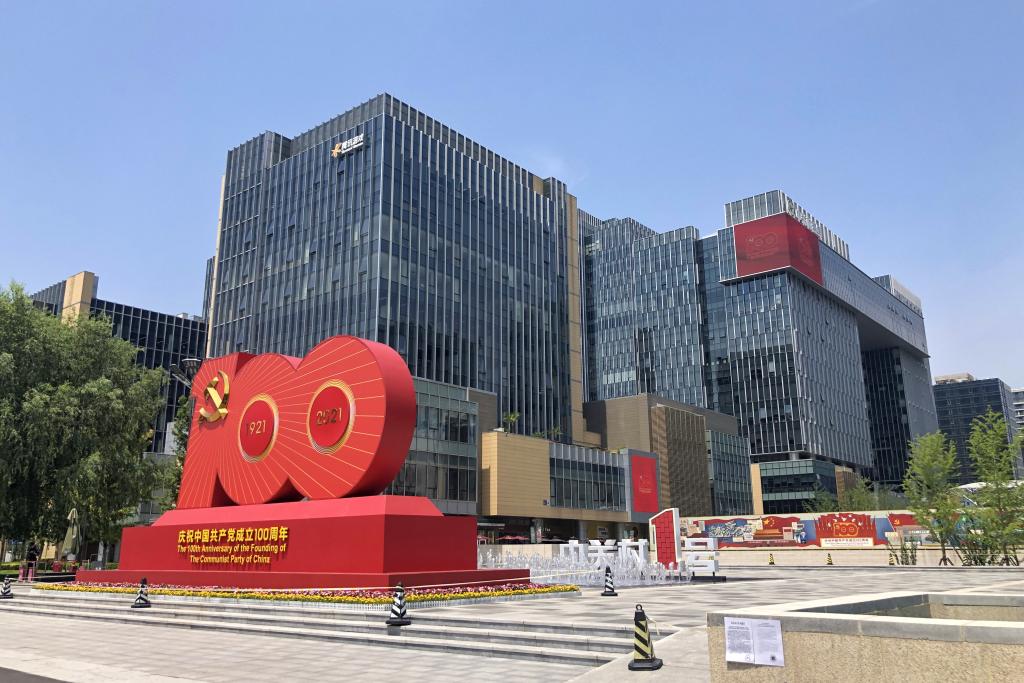China is ruled by the Communist Party, but it seems to be driven by capitalism, creating so much wealth that it has become the world’s second largest economy, trailing only the U.S.A. But lately, the Chinese government has started cracking down on its successful entrepreneurs and big companies. And there are signs that President Xi Jinping is seeking to bring back Communism, though in a form that retains prosperity under socialist control.
So reports the Wall Street Journal in an article by Lingling Wei entitled Xi Jinping Aims to Rein In Chinese Capitalism, Hew to Mao’s Socialist Vision:
Xi Jinping’s campaign against private enterprise, it is increasingly clear, is far more ambitious than meets the eye.
The Chinese President is not just trying to rein in a few big tech and other companies and show who is boss in China.
He is trying to roll back China’s decadeslong evolution toward Western-style capitalism and put the country on a different path entirely, a close examination of Mr. Xi’s writings and his discussions with party officials, and interviews with people involved in policy making, show.
For most of the 40 years after Deng Xiaoping first unleashed economic reforms in China, Communist Party leaders gave market forces wider room to flourish. That opening helped lift hundreds of millions of people out of poverty and created trillions of dollars in wealth, but also led to rampant corruption and eroded the ideological basis for continued Communist rule.
In Mr. Xi’s opinion, private capital now has been allowed to run amok, menacing the party’s legitimacy, officials familiar with his priorities say. The Wall Street Journal examination shows he is trying forcefully to get China back to the vision of Mao Zedong, who saw capitalism as a transitory phase on the road to socialism.
The article, behind a paywall, goes on to explain Chairman Xi’s attempt to create “a new kind of system that doesn’t exist anywhere in the world,” in which “the government would have a level of control that would allow it to steer the economy and industry along a path of its choosing, and channel private resources into strengthening state power.”
China’s economic success, with its exploitation of free market forces, does not contradict Marxist economic theory or Communist ideology. Marx taught that economic forces create social classes in a deterministic line of evolution. Feudalism leads to Capitalism, which leads to Communism, with each phase ending in a revolution that ushers in the next phase.
The problem with Russian and Chinese Communism, according to Marxist critics, is that these nations jumped directly from a Feudal system, with the Russian Czar and the peasant-based Chinese hierarchies, to Communism. Both nations skipped the Capitalist phase. As a result, Russia had to build an industrial infrastructure from scratch, which really didn’t work, an effort that led to the Soviet demise.
China was going down the same path, but Chairman Deng’s free market reforms allowed for a genuine capitalist phase, even in the context of totalitarian Communist rule. Such experiments have worked dramatically. But, at some point, the capitalism will have to give way to a genuine, developed socialism.
The challenge for Chairman Xi’s crackdown is that it risks killing the Peking duck that lays the golden egg. His desire to limit profits and equalize wealth could destroy the entrepreneurship, outside investment, and business dynamism that have made China so successful. If he succeeds, Communism could rise again, be widely copied, and become more formidable than ever.
Photo: Zhongguancun celebrating the 100th anniversary of the Communist Party this year by N509FZ, CC BY-SA 4.0 <https://creativecommons.org/licenses/by-sa/4.0>, via Wikimedia Commons













